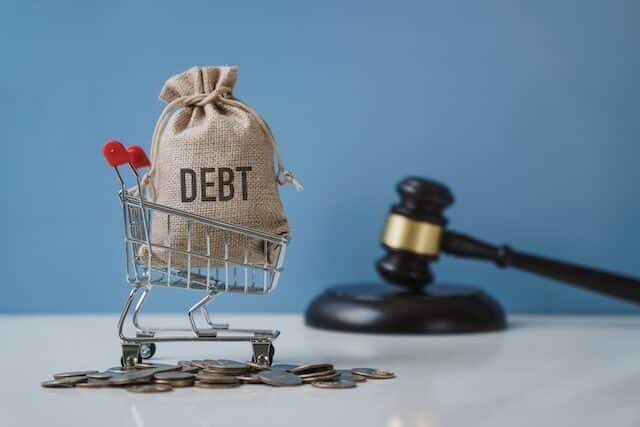When you’re buried in debt, it can feel like there’s no escape. You’ve slashed spending and tightened your belt, but the balances keep growing. That’s where debt settlement comes in. It gives you the option to negotiate a lower payoff, helping you regain financial control.
But before jumping in, it’s essential to know the full picture. Let’s explore the powerful truths that can help you make the smartest decision for your financial future.
1. What Is Debt Settlement?
Debt settlement means working with creditors to accept less than what you owe. For example, a $12,000 credit card bill might be settled for $7,000.
This usually applies to unsecured debts—like credit cards, medical bills, and personal loans. It’s a way to resolve debt without paying the full amount, but it’s not without risks.
2. It’s Not the Same as Debt Consolidation
People often confuse the two, but here’s how they differ:
| Feature | Debt Settlement | Debt Consolidation |
| Purpose | Reduce total debt | Simplify multiple debts into one |
| Method | Negotiation with creditors | New loan or credit line |
| Credit Impact | Short-term drop | Can improve with timely payments |
Debt consolidation doesn’t reduce the amount owed—it just makes payments more manageable.
3. Your Credit Score Will Likely Drop—At First
To start settlement negotiations, many people pause payments, signaling hardship to creditors. These missed payments hurt your credit score.
Even after a successful settlement, the account is marked as “settled” (not “paid in full”), which remains on your credit report for seven years from the date of first delinquency—not the settlement date.
Good news? You can rebuild your score by practicing good credit habits afterward.
4. You Can DIY or Use a Settlement Company—But Be Cautious
There are two approaches:
- Do-It-Yourself: You call creditors, explain your financial situation, and make a settlement offer.
- Debt Settlement Companies: They negotiate for you, typically taking a percentage of your settled amount as payment.
⚠️ Important: The FTC prohibits these companies from charging fees upfront. Only pay once a settlement is completed.
5. Not All Debts Are Eligible for Settlement
You can usually settle:
- Credit cards
- Store cards
- Medical bills
- Unsecured personal loans
But some debts can’t be settled, like:
- Student loans (federal)
- Child support
- Secured loans (like auto or mortgage loans)
- Certain tax debts
6. The Process Can Take Years—and That’s Normal
Most debt settlement programs last 2 to 4 years. You typically save money in a special account each month until there’s enough to make a lump-sum offer.
During this time, interest and penalties can still accrue, and there’s a risk creditors could send accounts to collections or even sue.
7. Forgiven Debt Might Be Taxable
If a creditor forgives more than $600, they must file a Form 1099-C with the IRS. This amount could be added to your taxable income, unless you qualify for an exception like insolvency.
💡 Tip: Use IRS Form 982 if you think you’re insolvent to avoid tax penalties.
8. Sometimes, Bankruptcy Is the Better Option
Debt settlement isn’t always the best choice. If you have no assets or income, filing Chapter 7 bankruptcy could offer faster relief.
However:
- Chapter 7 stays on your report for 10 years
- Chapter 13 stays for 7 years
Settlement may be less severe—but weigh all options carefully.
9. Watch for Debt Settlement Scams
Protect yourself from shady operators. Red flags include:
- Asking for fees before settling any debt (illegal!)
- Promising to eliminate all debt quickly
- Advising you to stop talking to creditors
✅ Always check with the FTC, BBB, or AFCC (American Fair Credit Council) before signing up.
10. It’s a Real Path to Starting Over
Once your debts are settled, you can focus on rebuilding. Many people find that debt settlement offers a much-needed financial reset.
It’s not perfect, and it won’t fix everything overnight—but it can offer freedom from relentless collections, late fees, and the stress of living paycheck to paycheck.
Frequently Asked Questions (FAQs)
1. Can I really settle debt on my own?
Yes. Many people negotiate directly with creditors. It takes time and persistence, but you can avoid company fees this way.
2. How much can I save through settlement?
Savings vary. Creditors might accept 30% to 60% of the original amount. Success depends on how overdue your accounts are and your financial hardship.
3. Will I be sued if I stop making payments?
It’s possible. Creditors can pursue legal action. That’s why it’s important to have a strategy and understand the risks.
4. Will I still get calls from collectors?
Yes, until a debt is settled, collection calls may continue. Using a debt settlement company may reduce the frequency, but not eliminate them entirely.
5. Can forgiven debt always be taxed?
Not always. If you’re insolvent (your debts exceed your assets), you may not owe taxes. But it’s best to consult a tax professional.
6. Are there better alternatives to debt settlement?
Depending on your situation, credit counseling or a debt management plan (DMP) may be a better fit—especially if you can still afford minimum payments.
Final Thoughts: Should You Choose Debt Settlement?
Debt settlement is a powerful but imperfect tool. It can slash your debt, stop the bleeding, and offer a real chance to move forward. But it also comes with risks—like credit damage, potential lawsuits, and tax implications.
So, what’s the key? Know your options. Talk to a certified credit counselor. Understand what each path looks like. And make a choice that sets you up for success.
You deserve a fresh start—and the knowledge to get there.

